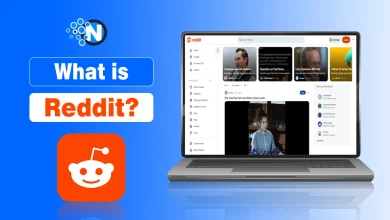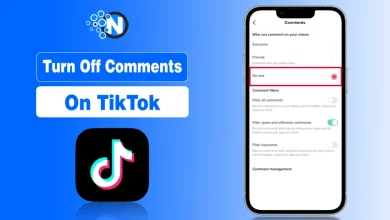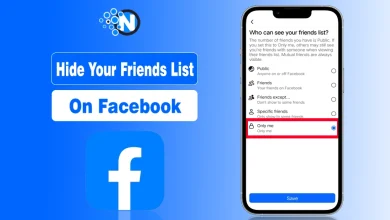9 Ways Other People Can Find Your Social Media Accounts

With 5.24 billion people using social media worldwide, your social media accounts are more than just digital diaries; they’re part of your online identity. Ever wondered how someone you barely knew suddenly liked your old Instagram post or sent you a friend request on Facebook?
This is nothing new, as there are several ways people can find you on social media, even if you think you’ve kept your accounts private.
As a tech expert, I will break down the most common (and sneaky) methods people use to find your profiles online. Whether you’re trying to stay low-key or just want to understand how your digital footprint works, this guide will help you stay informed and in control.
9 Ways People Can Find Your Social Media Accounts

1. Search Engines
One of the easiest ways to find social media profiles is by using Google, Bing, or other search engines. People who are interested in you can search for info using your name, location, workplace, or other relevant information. As you might have already noticed, the social media accounts that are generally indexed by search engines are open. It means that a search query can take you to any of your online accounts.
You can make all your social media accounts private if you don’t want others to view your posts and comments. In this way, you can ensure that even people who can find you will not be able to see any information that you have shared.
2. People Search Websites
People’s search websites are a lesser known but effective strategy to find online accounts. On Nuwber, for example, people can find your social media accounts, including Facebook, X, and Instagram, if they know your full name, phone number, and/or address.
To prevent this, you should use privacy-focused browsers and extensions. Also, limit what personal info you share on public platforms.
3. Your Acquaintances’ Follower and Following Lists
Another easy way by which people can find your social accounts is by looking at who your acquaintances are following and who is following them. Suppose your accounts appear on any of these lists. In that case, people may be able to identify them as belonging to you, especially if you use your photo, full name, nicknames, and images that are easily associated with you.
Those who prefer to remain anonymous may dislike the knowledge that third-party tools can help find common connections. These tools work by analyzing a network, pinpointing overlapping connections, and may provide functionalities that allow narrowing down search parameters.
4. Reverse Image Search
If you don’t want someone to find you, don’t have your photos everywhere. When people have photos of you, they can use a reverse image search to find online accounts associated with that image. More specifically, these tools work by allowing users to upload an image and find instances of its use.
You can avoid being found in this manner by making all your images private and avoiding sharing photos with people you don’t want to connect with.
5. Hashtags and Location Tags
As you might know, tags are particularly important on some social media accounts, with Instagram arguably being the most well-known example. Depending on the platforms you use, you might be searchable by tags if people know your interests and locations and if you are using tags to drive searches to your profiles.
Ask friends not to tag you in public posts, and review your tag and mention settings regularly to prevent unnecessary tags. Limiting who can see your friends list or interactions is also a good way to keep yourself hidden.
6. Your Email Address
Some people may be surprised to know that there are social platforms that find other users by their email addresses. So, if you have shared your email address with people you don’t want to connect with, make sure to make your accounts private.
It is probably best not to give your email address to everyone who asks for it, unless you don’t mind giving access to your public information. Not only can email addresses be used to find people’s online accounts, but they can also be used to find other information that is associated with the email address in question.
👉 Pro Tip: Disable contact syncing and use burner emails for social accounts you want to keep private.
7. Asking Other People
If you and the people who are searching for you share connections, your online accounts can be discovered because of your friends giving them to anyone who asks.
You can avoid this by limiting the number of people to whom you give access to your online data or asking them not to share any details unless you approve it.
8. Hacking Your Devices
If someone really wants to find your social media, they might go as far as trying to hack your devices to gain access to all your data. Specific techniques they may use include creating fake public Wi-Fi networks or sending phishing emails.
You can avoid being hacked by using a robust cybersecurity system, avoiding connecting to unknown public networks, and learning how to recognize and prevent phishing.
9. Your Employment Information
If you have provided your workplace details on a professional networking site such as LinkedIn, information about you may be readily available to colleagues and recruiters.
To make the best use of your accounts, adjust privacy settings. It helps you share as little as needed, if you choose to.
Bottom Line: You Can Keep a Low Profile if You Want to
Having at least one social media account is sometimes necessary to connect with friends or professionals in your field. And your online identity is more interconnected than you think. That’s why understanding how people find your social media accounts is the first step toward protecting your privacy.
Just because people can find you doesn’t mean they can bother you. Whether you’re a public figure, a watchful parent, or just someone who wants to keep digital footprint as low as possible, these insights will help you take control of your online presence.




